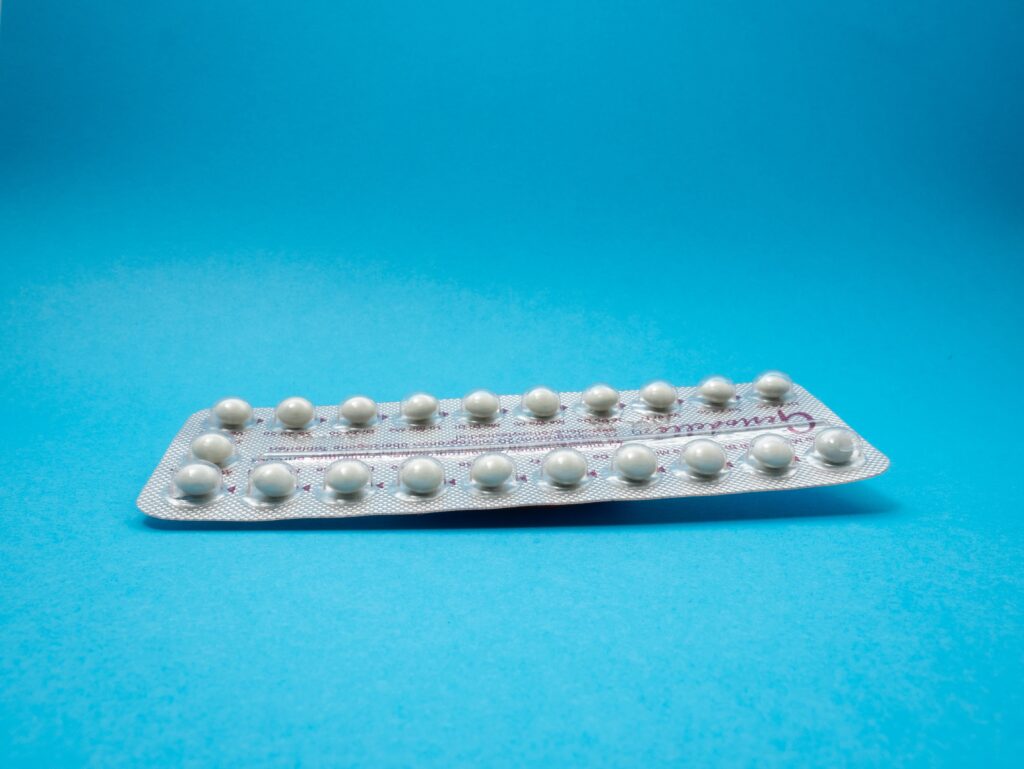Formerly known as HRT (Hormone Replacement Therapy), MHT (Menopausal Hormonal Therapy) has been a hot topic in women’s health recently. If you are perimenopausal or menopausal and wondering about whether MHT would be right for you, or if you are wanting to know more about MHT in preparation for perimenopause in the future, read on, we’ll cover some of the most commonly asked questions here!
What is MHT?
Like combined oral contraceptive pills (COCPs), “combined” MHT regimes contain oestrogen and progestogen. But COCPs contain high-dose synthetic hormones designed to suppress ovulation and therefore provide contraception. MHT regimes in contrast are designed to restore or “even-out” hormone levels in the blood to “physiological” or “normal” premenopausal levels and are not designed to provide contraception. Oestrogen is provided to help with symptoms and progestogen (in both COCPs and MHT) is used to stop the lining of the uterus (endometrium) from becoming thickened in response to the oestrogen, and control menstrual bleeding. Only women who have had a hysterectomy can take oestrogen without progestogen. Read more about the preparations of oestrogen available in New Zealand including Estrogel (oestrogen gel) which will be funded from November 2024 here.
Where does the confusion and controversy about the risks of MHT come from?
We’ve written a separate article about this which you can read here, but in short, in 2002, a large study of MHT was pre-released to the media before it was published in scientific journals and the risks were sensationalised and reported out of context.
So is MHT safe then, and who is it safe for?
Usually, provided you don’t have any particular risk factors for having problems with MHT (see below) we consider it safe to use and continue up until the age of 60 years. Beyond the age of 60 years, we have minimal data about the safety of continuing MHT, however we don’t necessarily insist our patients come off MHT at age 60, but continue to re-assess the risks-benefit balance on a regular (usually annual) basis. There is some evidence that starting (as opposed to continuing) MHT more than 10 years after menopause or over the age of 60 is associated with increased risk of heart attacks and strokes, however if you have severe symptoms without any vascular risk factors then you and your doctor may decide that the benefits of a trial of MHT may outweigh the risks. At the current time we don’t have the evidence to say that peri/menopausal women without symptoms should be taking MHT, however if you do have troublesome symptoms and don’t have any risk factors, then most likely, the benefits out-weigh the risks.
Who should be careful of MHT and possibly not use MHT?
The main situations when experts generally agree MHT should not be used are current/or recent
- liver inflammation or failure
- heart attack or stroke
- breast cancer
- uncontrolled high blood pressure
- Deep vein thrombosis or pulmonary embolism
For more nuanced risk factors such as a family history of breast cancer, controlled high blood pressure, vascular risk factors without a history of heart attack or stroke, and previous history of a small blood clot, if you have menopausal symptoms, the benefits and risks can be considered, and often specialist/multiple specialists opinions are recommended to help assess risks.
Who should use MHT?
For those who go through early menopause, especially if under the age of 45, international recommendations are to use MHT to replace normal hormone levels up until the age of 50. (and thereafter if required for symptoms). This is to counter the effects of oestrogen deficiency on the health of the bones, brain, vascular system and other body systems.
For women who are over the age of 45 years when they reach their last menstrual period, or start to develop menopausal symptoms then the decision to take or not take MHT is really about how much the symptoms affect your quality of life. If you are not sure if MHT will help or not then talk to your doctor about “giving it a go”. A trial of 3 months of hormone therapy can help you decide – “is this improving my quality of life enough that it is worth continuing with?”
Hopefully this overview removes some of the mystery, and clarifies some of the confusion around the risks of MHT!
Want to be walked through everything you need to know to be prepared to navigate and thrive in perimenopause and menopause in one place including more detail around the different types of MHT regimes and which might be right for you? We are developing an App-based course to do just this! Find out more here.

Comments +